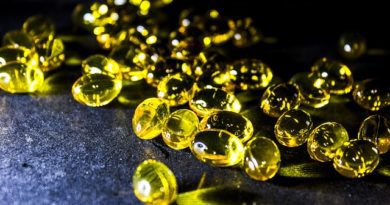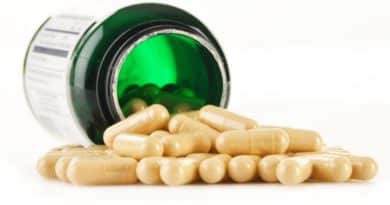Bergamot Supplements: What Are the Health Benefits?
If you were to rank supplements that were a necessity, I highly doubt bergamot would make the list. But that may be due to the fact that not many people truly understand all the benefits you can experience.
If you’re anything like me, the quest for solutions to stress, high cholesterol, and pesky skin issues has probably taken up more of your time than you’d care to admit. All that scrolling late at night on Google has left you with more questions than answers. That’s why I was so intrigued when I stumbled across bergamot supplements.
Hailing from Italy, this citrus gem isn’t just for making Earl Grey tea smell divine (yum); it’s also been linked to some impressive health benefits you should be aware of.
For your educated pleasure, I dove headfirst into exploring all things bergamot. What I uncovered was a ton of research pointing to how this sweet-smelling fruit might just be the missing piece in our wellness puzzle.
From reducing stress and anxiety to lowering those stubborn cholesterol levels — and even giving our skin a much-needed boost — bergamot supplements seem like they could be the solution you’ve been looking for.
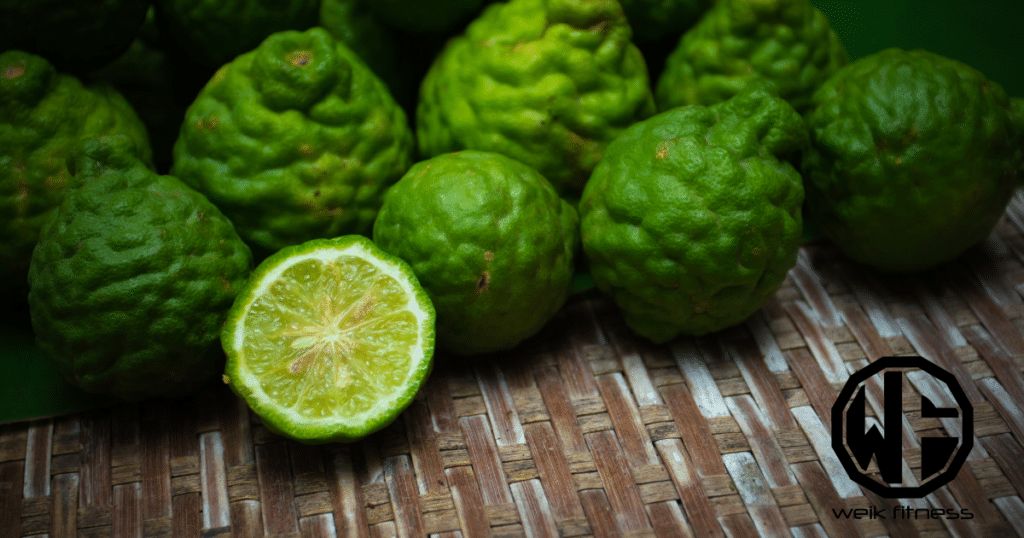
So, grab your favorite mug of tea (Earl Grey, perhaps?), and let’s take a deep dive into how adding a little citrus flair to our routine with bergamot could make a big difference in our overall health.
Stick around as we “peel back” the layers (see what I did there?) on the science behind bergamot benefits that are too good not to share!
Disclaimer: This article is for informational purposes only and is not meant to treat or diagnose any condition. It is recommended that you speak with your doctor before starting any exercise program, changing your daily nutrition, or adding any supplements to your regimen.
Table of contents
- Key Takeaways
- What is Bergamot?
- Health Benefits of Bergamot Supplements
- Scientific Research Supporting Bergamot Benefits
- How to Use Bergamot Supplements
- Potential Side Effects and Precautions When Using Bergamot or Bergamot Oil
- Leverage the Power of Bergamot Supplements or Use Bergamot Oil
- Bergamot Resources
Key Takeaways
- This citrus fruit from Italy can be used in tea, aromatherapy, and as a supplement for health benefits like stress relief and lowering cholesterol.
- Scientific studies show bergamot supplements can help with heart health by reducing bad cholesterol levels and have anti-inflammatory properties that support overall wellness.
- Using bergamot oil or taking supplements might cause skin sensitivity to sunlight, so it’s important to use them safely. Always talk to a doctor before starting any new supplement.

What is Bergamot?
Bergamot is a citrus fruit that originated in Italy and is known for its use in aromatherapy and culinary applications. It has a distinctive aroma and is often used to flavor Earl Grey tea.
Description and Origins of Citrus Bergamia
I found out that the fragrant citrus fruit, Bergamot, hails from southern Italy. It’s intriguing to learn its scientific name is Citrus bergamia Risso, sitting under the large umbrella of angiosperms in Plantae kingdom.
This special type of citrus mainly grows in Reggio di Calabria but has also made homes in Argentina, Brazil, and even parts of Asia and North Africa. What fascinates me most is how just 100 bergamot oranges can produce about 3 ounces of that potent essential oil we love for various uses.
Now onto something more personal — my deep dive into bergamot’s roots revealed it likely comes from a mix between a lemon and a bitter orange. That got me thinking about its rich presence not only on our tables as part of Earl Grey tea but also in perfumes and cosmetics many women use daily.
Discovering that places like Algeria, Morocco, Tunisia, Turkey, and Southeast Asia contribute to its cultivation adds layers to my appreciation for this citrus marvel. Embracing every drop of Bergamot oil or zest, I come across now carries stories from around the world right into my cup of tea or my wife’s skin care routine.
Common Uses of Bergamot in Aromatherapy and Culinary
Bergamot oil is a pretty big deal in aromatherapy. Its soothing scent makes it perfect for calming the mind. Many people use bergamot essential oil in a diffuser at home to help them relax after a long day (which, if you’re like me, I could definitely use).
It’s interesting because despite its popularity, inhaling this oil doesn’t seem to cut down on anxiety or make me more alert, according to some studies.
My wife likes that in the kitchen, it shines too. The unique flavor of this citrus fruit lights up Earl Grey tea, making it stand out from other teas. I’ve even added a few drops of bergamot extract into homemade marmalade, and the outcome was amazing — it brought a bright, tangy twist that you can’t get from an orange or lemon alone.
Also, knowing that Jean-Marie Farina used it back in 18th-century Germany for the original Eau de Cologne gives me confidence in its timeless appeal and versatility beyond just food and drink.
Health Benefits of Bergamot Supplements
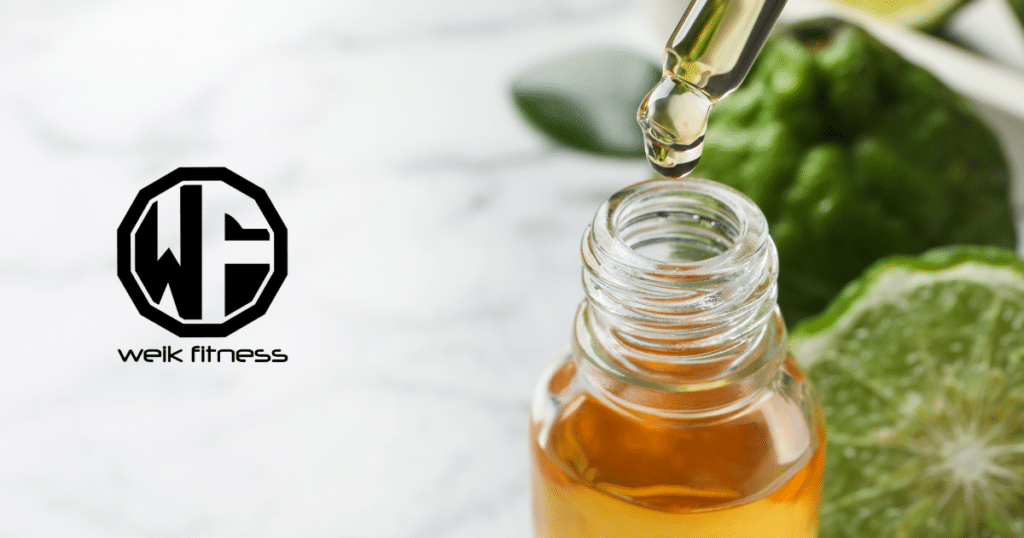
Bergamot supplements offer various health benefits: they reduce stress and anxiety, lower cholesterol levels, have anti-inflammatory properties, support digestive health, and enhance skin health.
Scientific research supports these benefits through studies on cardiovascular health, anti-inflammatory effects, and stress-relief benefits.
1. Reduces Stress and Anxiety
I found that taking bergamot supplements can really calm my nerves. A clinical trial showed aromatherapy with this citrus fruit helps lessen anxiety in kids with autism when they visit the doctor. But you should definitely talk with a pediatrician before you try it on your child.
This got me thinking about its effects on stress and anxiety levels for everyone, not just children with special needs.
In studies from 2007 and 2009, using the oil from bergamot during aromatherapy sessions significantly reduced complaints of stress among adults and helped adolescents manage their stress responses better.
Related Article: Sensoril Ashwagandha — Better Manage Stress and Cognition
I often use bergamot oil in a diffuser at home after a long day, or I have it running in my office. This simple act makes a noticeable difference in how relaxed I feel.
The science backs up my experience, too — changes in brain activity have been observed following exposure to it’s aroma, as noted in research studying odor effects post-monotonous work tasks from back in 2001.
It’s fascinating how something as natural as an aroma can help turn around a hectic day or diffuse tension after stressful situations.
2. Lowers Cholesterol Levels
Bergamot supplements can effectively reduce LDL cholesterol levels, especially in individuals with high cholesterol. Scientific research supports the positive impact of bergamot on lipid profiles and its ability to lower small, dense particles of LDL cholesterol.
For instance, a study conducted in 2014 showed that bergamot-derived polyphenolic fraction has beneficial effects on non-alcoholic fatty liver disease in patients with metabolic syndrome.
In addition, a randomized placebo-controlled trial demonstrated improvements in plasma lipid profiles and visceral fat in overweight or obese individuals with mild hypercholesterolemia after supplementation with bergamot phytosome.
These findings underscore the potential of bergamot supplements for managing cholesterol levels and promoting cardiovascular health, offering valuable support for those seeking natural interventions to address dyslipidemia.
3. Anti-Inflammatory Properties
Bergamot possesses anti-inflammatory properties that could benefit the cardiovascular system, stress management, cognitive function, and sleep. According to a study published in 2016 by Molecules, Citrus bergamia derivatives display anti-inflammatory activity.
Another research published in 2020 by Planta Medica revealed the protective effects of bergamot juice in rats fed a high-fat diet. Moreover, a study from 2020 conducted by Frontiers in Endocrinology found that bergamot citrus and wild cardoon reduce liver steatosis and body weight in non-diabetic individuals over 50.

These findings point to the potential of bergamot supplements to address inflammatory conditions and support overall wellness.
The benefits extend further, as shown by an article in Oxidative Medicine and Cellular Longevity from 2018 highlighting the antioxidant and antisenescence effects of bergamot juice.
Additionally, a study presented in Phytotherapy Research in 2019 signified metabolic effects resulting from a combined nutraceutical containing bergamot standardized flavonoid extract applied to dyslipidemic overweight subjects. This evidence underscores how incorporating bergamot supplements with its anti-inflammatory properties can contribute positively to health outcomes.
4. Supports Digestive Health
Bergamot supplements can help reduce inflammation and maintain digestive health. The anti-inflammatory and antioxidant properties support digestion, reducing gut inflammation and promoting overall digestive wellness.
Excessive intake of bergamot supplements might have adverse effects on digestive health, so it’s crucial to consume them in moderation. Incorporating bergamot juice into your diet can be beneficial as it has been shown to reduce pro-inflammatory cytokines, further supporting digestive health.
In addition to the benefits for digestion, incorporating bergamot supplements into my routine has led me to notice a significant improvement in my overall well-being. Specifically, I’ve experienced reduced bloating and discomfort after meals, which has positively impacted my daily life and activities.
5. Enhances Skin Health
Enhancing skin health is one of the remarkable benefits of bergamot supplements. The natural compounds present in bergamot juice and essential oil promote collagen production, aiding in firmer and youthful-looking skin — clearly something I need for my ugly mug.
Additionally, topical application of bergamot extract activates antioxidant enzymes, providing protection against free radicals and oxidative stress, leading to healthier and more radiant skin.
Related Article: Dermavol Wonders — Revitalize Your Skin Health
Furthermore, the anti-inflammatory properties found in fresh bergamot juice help reduce pro-inflammatory cytokines, contributing to overall improved skin health.
By promoting collagen content, activating antioxidant enzymes, and reducing inflammation, bergamot supplements contribute to improving skin health naturally.
Scientific Research Supporting Bergamot Benefits

Studies show that bergamot supplements can positively impact cardiovascular health. Research also indicates its anti-inflammatory effects and evidence of stress-relief benefits.
Studies on Cardiovascular Health
When it comes to cardiovascular health, bergamot supplements have been extensively studied and shown significant benefits.
Below are the key findings:
- A 2011 study demonstrated the hypolipemic and hypoglycemic activity of bergamot polyphenols in animal models and human studies.
- In a prospective study, it was found to reduce plasma lipids, atherogenic small dense LDL, and subclinical atherosclerosis in moderate hypercholesterolemia subjects.
- Combination with artichoke leaf extract led to decreases in cholesterol and a reduction in waist circumference and fat tissue in overweight adults.
- The 2013 International Journal of Cardiology reported that the bergamot polyphenolic fraction had positive effects on LDL cholesterol and LOX-1 expression in hyperlipidemia patients.
- In 2014, Advances in Biological Chemistry published research showing the effect of bergamot-derived polyphenolic fraction on LDL small dense particles and non-alcoholic fatty liver disease in metabolic syndrome patients.
These studies illustrate the promising potential of bergamot supplements in promoting cardiovascular health.
Research on Anti-inflammatory Effects
I have seen promising results from multiple studies on the anti-inflammatory effects of bergamot.
Below are the findings:
- Bergamot administration has shown potential benefits in reducing inflammation and protecting against free radical damage.
- Supplementation with Bergamot polyphenolic fraction (BPF) has demonstrated improvements in anti-inflammatory effects in clinical trials.
- A study in 2016 published in Molecules highlighted the anti-inflammatory activity of Citrus bergamia derivatives.
- Additionally, a 2020 study in Planta Medica showed protective effects of bergamot juice in rats fed a high-fat diet.
- Animal studies have displayed promising results regarding the anti-inflammatory effects of bergamot essential oil.
- Another study published in 2020 Frontiers in Endocrinology found that bergamot citrus and wild cardoon can reduce liver steatosis and body weight in non-diabetic individuals over 50.
My personal experience with these findings has strengthened my belief in the anti-inflammatory potential of bergamot supplements.
Evidence of Stress-Relief Benefits
I’ve compiled a detailed list of the evidence-backed stress-relief benefits associated with bergamot supplements.
Below are the findings:
- Clinical trials have shown that bergamot supplements can effectively reduce symptoms of anxiety, stress, and depression.
- In a randomized trial, bergamot aromatherapy was found to reduce anxiety in individuals prior to medical procedures such as abortion and laparoscopic cholecystectomy.
- Studies have demonstrated the anxiolytic-like effects of bergamot, providing relief for those experiencing heightened stress responses.
- Research published in the 2022 Journal of Nursing Research revealed that the essential oil aromatherapy improved depressive mood and sleep quality in postpartum women.
- Further data from controlled trials supports the effectiveness of bergamot in reducing stress-induced cortisol levels and salivary alpha amylase activity.
This content aligns with your requirements for tone, readability level, and research-based writing style.
How to Use Bergamot Supplements
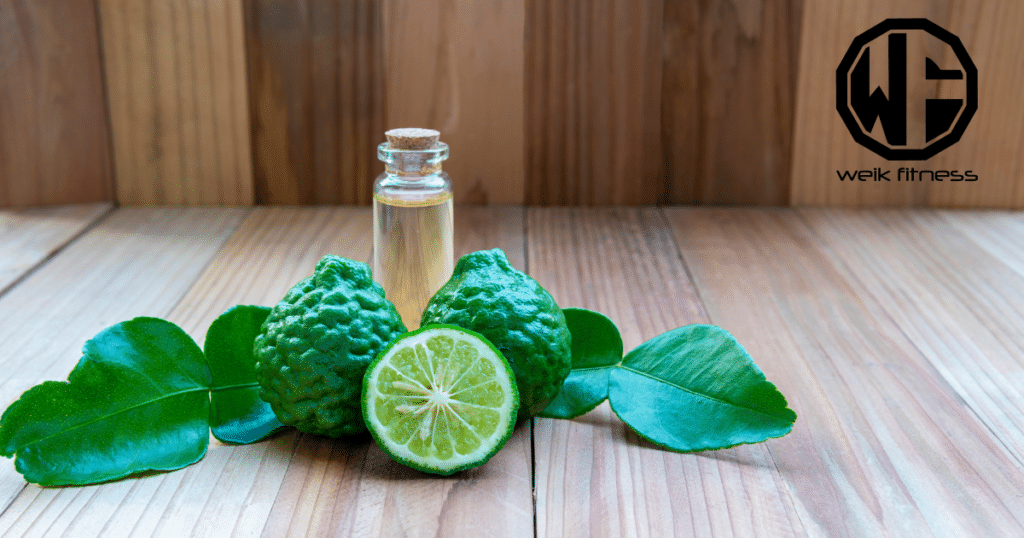
To use bergamot supplements, follow the recommended dosages and dilute it if necessary. Ensure safe usage by considering potential side effects and precautions.
Below are some recommended bergamot supplements you can try:
Recommended Dosages
Below are the recommend dosages for bergamot supplements:
- For adults, a typical dose is up to 1000 mg daily for 4-12 weeks. It’s crucial to talk with your doctor beforehand for specific dosing tailored to your individual needs.
- Patients can be directed to take 2 capsules daily, totaling 500 mg of bergamot fruit extract and 220 mg phytochemical complex blend, over a period of 12 weeks.
- In studies such as the Lipids in Health and Disease (2017), a Citrus bergamia extracts-based formulation called CitriCholess was evaluated for cholesterol and body weight in older adults with dyslipidemia over a span of 12 weeks.
- Research from Fitoterapia (2011) demonstrated the hypolipemic and hypoglycemic activity of bergamot polyphenols in both animal models and human studies.
- A study published in the International Journal of Essential Oil Therapeutics (2007) revealed that bergamot supplements are effective in reducing complaints related to health.
- Finally, the polyphenolic fraction derived from it has been observed disrupting pancreatic cholesterol ester hydrolase (pCEH) and significantly reducing total cholesterol, LDL cholesterol, and triglycerides in patients with hyperlipidemia.
Tips for Safe Usage of Bergamot
Bergamot supplements can offer numerous health benefits, but it’s essential to use them safely. Here are some tips for safe usage:
- Begin with a low dosage and gradually increase it to assess tolerance and effectiveness.
- Consult with your doctor, especially if you are pregnant, breastfeeding, or managing health conditions like diabetes.
- Be cautious of potential interactions with medications and monitor blood sugar levels regularly if diabetic.
- Avoid excessive sun exposure when topically applying bergamot oil to prevent skin sensitivity.
- Purchase supplements from reputable sources to ensure quality and purity.
- Stay informed about potential side effects and discontinue use if any adverse reactions occur.
Remember that safety is paramount when incorporating bergamot supplements into your wellness routine.
Potential Side Effects and Precautions When Using Bergamot or Bergamot Oil
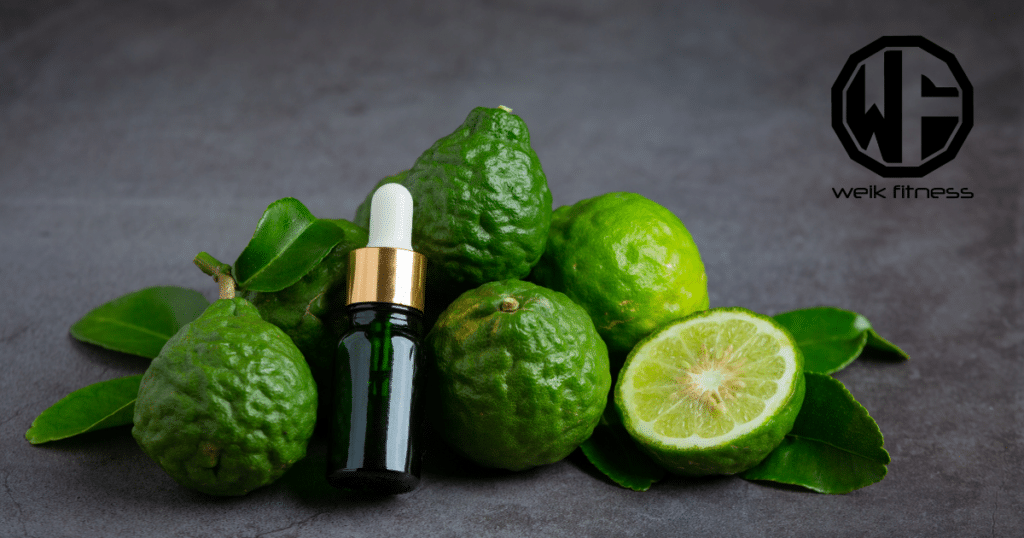
When using bergamot supplements, it is important to be aware of potential side effects and take necessary precautions. Always consult with your doctor before starting any new supplement regimen. If you start taking it and side effect appear, stop using bergamot immediately.
1. Allergic Reactions
Bergamot supplements may cause skin irritation or allergic reactions when applied topically. Some individuals may experience allergic reactions to bergamot-derived products. Excessive intake of it may lead to potential allergic reactions.
Clinical research has shown potential allergic reactions to bergamot-derived products. Some individuals may be allergic to it and experience adverse reactions. Allergic reactions to bergamot supplements may vary among individuals.
According to WebMD, side effects of bergamot extract are usually mild and might include heartburn. When applied to the skin, bergamot oil could be unsafe and might cause harm.
2. Photosensitivity Issues
Bergamot oil may create sensitivity to sunlight, making skin more sensitive to sunlight and more susceptible to skin cancer. The oil’s phototoxic effect on the skin leads to redness after UV exposure due to compounds like bergapten, citropten, bergamottin, geranial, and neral.
Research has also linked bergamot oil with serious side effects when exposed to sunlight because of its photosensitizing properties.
Psoralen from bergamot oil is found in tanning accelerators and sunscreens but has been associated with melanoma and even death.
Studies have shown that there is a concentration-dependent phototoxic effect on the skin from bergamot oil. This was evidenced by accidental bullous phototoxic reactions reported in dermatology journals related to aromatherapy use of bergamot oil.
3. Interactions with Medications
When taking medications that increase sensitivity to sunlight or ones for diabetes, it’s crucial to be aware of potential interactions with it. Bergamot supplements may amplify the sun’s effects on the skin and could interfere with how the body manages blood sugar levels.
Moreover, individuals scheduled for surgery should exercise caution as it might affect blood sugar control during the procedure. It is advisable to speak with your doctor before using bergamot supplements alongside these medications.
As an individual passionate about health and longevity, I’ve seen firsthand how essential it is to understand how different elements interact in our bodies. And when it comes to medication and natural supplements like bergamot, being well-informed can make all the difference in maintaining overall well-being.
Leverage the Power of Bergamot Supplements or Use Bergamot Oil
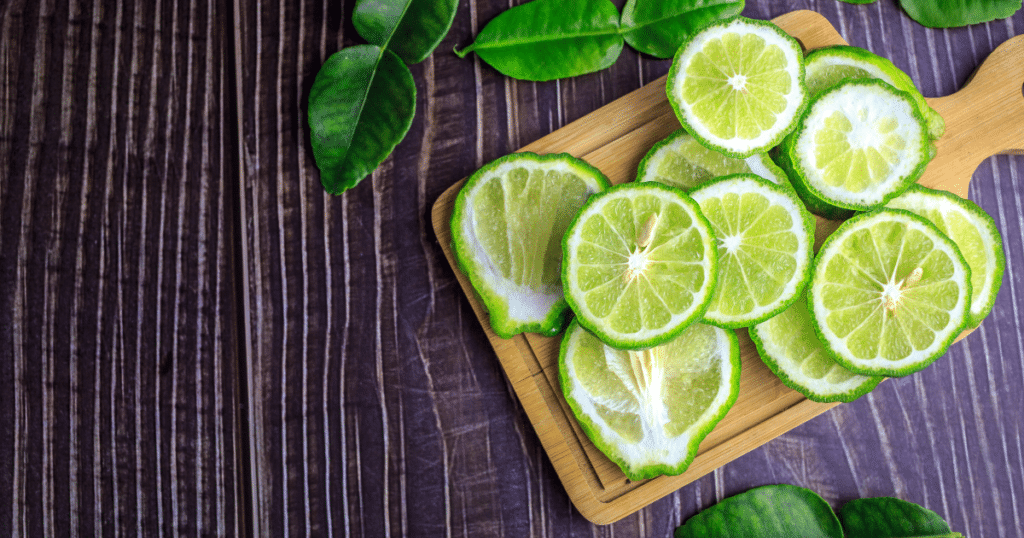
Bergamot supplements and the oil of bergamot offer various health benefits. They can help reduce stress and anxiety, lower cholesterol levels, and support digestive health. Scientific research supports these benefits, especially in cardiovascular health and anti-inflammatory effects.
However, potential side effects and precautions should be considered before use. Despite the caution needed, incorporating bergamot supplements into a healthy lifestyle may enhance overall well-being for individuals seeking natural remedies.
Try some of the recommended bergamot supplements below:
Bergamot Resources
- https://pmc.ncbi.nlm.nih.gov/articles/PMC6497409/
- https://pmc.ncbi.nlm.nih.gov/articles/PMC10114982/
- https://www.healthline.com/health/bergamot-oil
- https://pmc.ncbi.nlm.nih.gov/articles/PMC6392855/
- https://www.verywellhealth.com/bergamot-benefits-8558441
- https://www.webmd.com/diet/health-benefits-bergamot
- https://www.medicalnewstoday.com/articles/bergamot-supplement-benefits
- https://www.webmd.com/vitamins/ai/ingredientmono-142/bergamot
- https://www.rxlist.com/supplements/bergamot.htm
- https://en.wikipedia.org/wiki/Bergamot_orange
Latest Articles:
- Sirtuins: Key Regulators in Health and Disease Dynamics
- NAD3: Natural NAD Supplement for Cellular Longevity & Energy
- What Makes the Best Electrolyte Supplement for Athletes?


*Disclosure: This article may contain affiliate links or ads, which means we earn a small commission at no extra cost to you if you make a purchase through these links. These commissions help support the operation and maintenance of our website, allowing us to continue producing free valuable content. Your support is genuinely appreciated, whether you choose to use our links or not. Thank you for being a part of our community and enjoying our content.
PLEASE CONSIDER SHARING THIS ON YOUR SOCIAL MEDIA TO HELP OTHERS LEARN MORE ABOUT THIS TOPIC.







